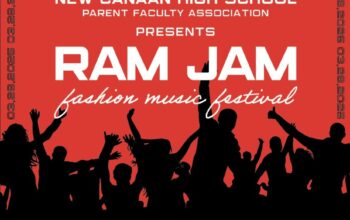Abigail Neugeboren, News Editor
@AbigailNCourant
On Wednesday, November 5th in the NCHS auditorium, Richard Guerry, founder of the non-profit organization The Institute for Responsible Online and Cell-Phone Communication (IROC2) spoke to 9th through 11th graders to educate them about the innovations of the ‘Digital Renaissance’ and the importance of cyber awareness.
Tenth grade administrator Steven Bedard was supportive of the speaker’s goals for the presentation. “The intent was to educate. This was sponsored by the PFA, so it’s the parents of all the students that felt this was a powerful message that needed to get out to students,” he said. “I really do hope that the message was heard and it’s understood. [Social media] is a powerful tool for people to use but unfortunately what goes along with that are powerful negatives that come from misuse.”
Guerry was clear in his intentions as well. “You’re hearing this because you deserve it, and I’m not telling you what you should or shouldn’t do.” he told the audience.

“Digital activity is public and permanent,” Guerry said. This was the theme of the presentation as Guerry spoke passionately about his ‘Course to Digital Consciousness’ touching on points including, ‘“Playing with fire can burn – abusing a powerful tool increases the chances of getting hurt’, and ‘Rules for Cyber Cruelty’, “You can’t be in someone elses head, you don’t know who people know, everything can be brought back, and don’t say it online if you wouldn’t say it to anyones face.”
The school also addressed these issues in advisory classes. “I think having people be aware of the severity of the consequences when people use social media inappropriately is important and the school was appropriate in addressing it through advisory.” Bedard said. “When people continue to use certain devices it gives them momentum to continue using it in a negative way, but if the student body took a stand against it I don’t think the people would have that platform anymore to misuse it so publicly.”
By replacing perception with knowledge, Guerry urged students to be aware of the dangers of cyberspace before using a device blindly.
Mr. Bedard feels the most significant tool for change is the students themselves. “The student body has the most powerful influence over itself. People would like to think that administrators have that power but really if the student body stands up collectively I think that would be the most powerful thing,” he said. “We can do a lot of things and say a lot of things but unless the student body stands up and makes the decision to change, it’s going to be a long process.”



